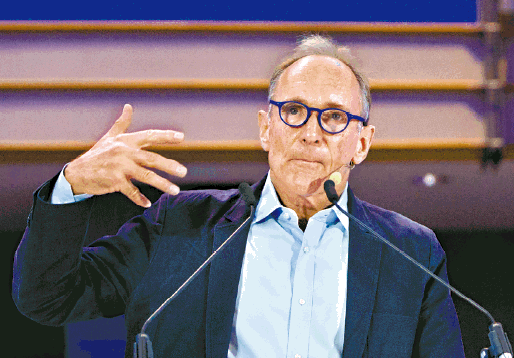On December 25th, 1990, at the European Organization for Nuclear Research (CERN), British scientist Timothy John Berners-Lee performed the first communication between a client and server using HyperText Transfer Protocol (HTTP). This is regarded as the beginning of the World Wide Web. Berners-Lee has been called as the "Father of the Internet", and was awarded the ACM Turing Award (which has been called the "Nobel Prize of computer science") in 2016.
On the 30th anniversary of the World Wide Web in 2019, Berners-Lee published an open letter confessing his concerns about the development of the Internet. These concerns included state-sponsored hacking and attacks; systems designed with perverse incentives (e.g., ad-based revenue models); and unintended negative consequences of benevolent design (e.g., the outraged and polarised tone and quality of online discourse). In a speech at CERN to mark the 30th anniversary of the World Wide Web, he called for a new "Contract for the Web": Governments must ensure that everyone can connect to the Internet and respect citizens' privacy; companies must respect users' privacy, and develop technologies that put citizens and the public interest first; and citizens must build strong communities that respect civil discourse and human dignity.
References: [瑞士資訊("SWI swissinfo.ch")(Chinese)] (https://www.swissinfo.ch/chi/-web30_互联网问世30周年-发明者反思该如何克服-成长的烦恼-/44818440); Rory Cellan-Jones, "BBC": ["Tim Berners-Lee: 'Stop web's downward plunge to dysfunctional future'"] (https://www.bbc.com/news/technology-47524474); [端傳媒("Initium Media")(Chinese)] (https://theinitium.com/article/20170313-dailynews-Tim-Berners-Lee-web-threat/)
